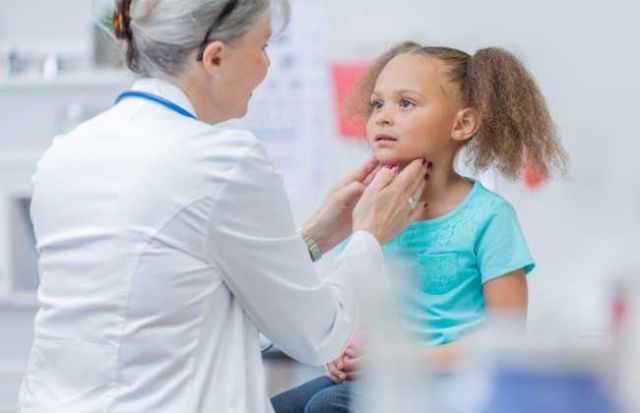Every child has a different growth process, even at the same age. But in a certain age range, every child is expected to have reached a certain stage of growth and development according to his age. In the child's development period, parents must pay attention to every sign that appears. One thing to watch out for is the appearance of signs of autism in children.
Autism in children
Every parent would want to grow and develop their children well. Not surprisingly, worry often arises when the child's growth is different from that of his age. One concern that often arises from parents is autism in children.
Autism is a developmental disorder of brain function that makes a person unable to form social relations or communicate normally. Usually parents are only aware of developmental abnormalities in children after much social interaction at school.
The condition of autism is found to affect around 1 percent of people worldwide. This condition also includes a spectrum of disorders ranging from mental retardation and the inability to communicate with relatively mild symptoms, as seen in people with Asperger's syndrome.
Until now, medical practitioners have not been able to mention the exact cause of autism. However, genetic factors and environmental factors are believed to have an important role. Children who have siblings or other family members with autism are at greater risk of experiencing the same condition.
In addition, several studies also show that there is an association between serotonin levels or other brain neurotransmitters that are not normal for the condition of autism. For more details, precede the various signs.
Signs of autism that you need to be aware of
According to a study conducted in Canada and published in the International Journal of Developmental Neuroscience, about 200 participants were the object of research. The results of the study found that the sign of autism had begun to be detected accurately since a 12-month-old child.
In fact, The Autism Observation Scale for Infants issued a scale that could be a benchmark for early diagnosis of autism in children. Although this scale can be used starting from a 6-month-old baby, it will be more accurate when used after a 12-month-old baby. Some of the signs include:
1. Don't want to smile
Usually the baby will smile back when you smile at him. To test it, you can try looking at the baby with a flat face and then smile broadly for a few seconds. You can try it about 3-4 times. Usually babies will smile back, though not always.
2. Lack of eye contact
Most babies will enjoy seeing the faces and expressions of others, especially those closest to them such as parents or family members. Babies will usually make eye contact.
3. Not responding when called by his name
In general, the baby will respond when you call his name, at least at the age of 9 months. So, try to see if your baby responds when his name is called.
4. Lack of social contact
Naturally, babies will carry out certain gestures when interacting with other people. Such as when you want to be carried, the baby will usually raise his hands.
In addition, the baby will laugh when invited to play or joke. Look at your baby's gestures when interacting with him.
5. Not following visual movements
Try to pick up brightly colored objects or toys and move them slowly in front of your baby. See if he follows the movement of the object or just doesn't care about it.
6. Rarely mumble or babbling
Babies usually like to mumble or make sounds before they can say the first word. However, babies with autism rarely make a sound, are slow to talk or don't want to talk at all.
7. Glued or obsessed with certain unusual objects
Babies with autism are usually happy to be fixed on certain "unusual" objects for children, such as floors, certain patterns on walls, fans, and so on.
Ways to Overcome Autism
Behavioral therapy that is carried out intensively, and begins before the age of 3 years, is proven to be able to improve the language skills and social functions of the child. Therapy is most successful when focused on the behavior patterns and functions of the Little One. Education, training, and mother and husband support are always expected. Sometimes the little one also needs to take medication, if accompanied by psychiatric symptoms. The learning program then starts as early as possible, since the age of 2-4 years.
You can learn various signs of autism in children in order to find out the true condition of the child. If it turns out that children have symptoms of autism, at least you can anticipate early in consultation with a pediatrician.
 webDailyHealth
webDailyHealth











